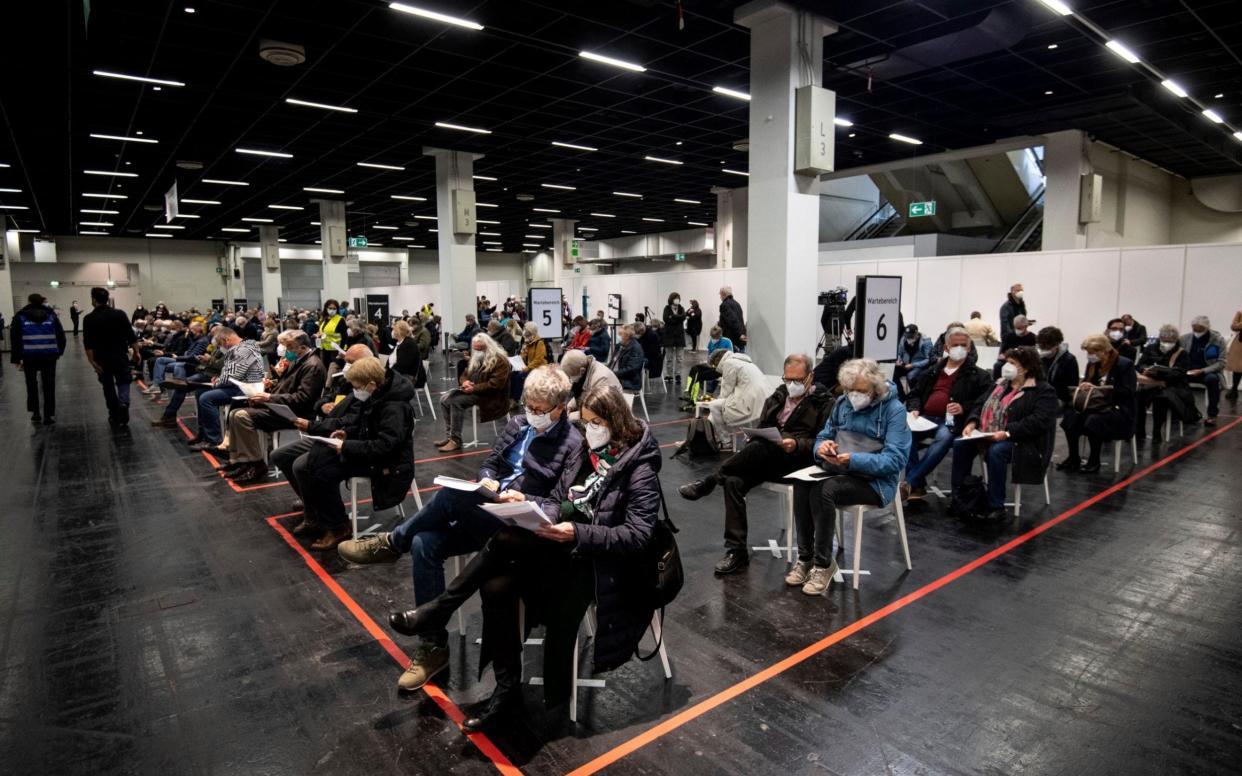Germany plans 'vaccine passports' as Angela Merkel pushes for stricter lockdown

Germany has announced plans to allow people vaccinated against Covid-19 certain privileges over their unvaccinated peers, in a significant step towards introducing so-called "vaccine passports."
Jens Spahn, the country's health minister, said on Sunday that vaccinated people would be allowed to travel without quarantine, visit hairdressers and go shopping with minimal restrictions after new research indicated vaccinated people only pose a minimal risk of transmitting the virus.
“Anyone who is vaccinated can go to the shop or the hairdresser without further testing. In addition, according to the Robert Koch Institute (Germany’s peak health research agency), completely vaccinated people no longer have to be in quarantine,” Spahn told Germany’s Bild tabloid on Sunday.
He did not give an exact date upon which the rules would come into effect, although German media reported the measure would be introduced in the coming weeks.
British Prime Minister Boris Johnson is expected to announce a Covid vaccine passport system this week. Currently, people arriving in Germany from risk areas are required to quarantine for ten days, while some states allow Germans to visit shops and hairdressers only with evidence of a recent negative test.
Under the plan, people who have received both vaccine doses will be free to shop, travel and visit hairdressers from 14 days after their final shot, when their risk of transmitting the disease becomes negligible.
“According to the research, the risk of virus transmission by people who have been fully vaccinated from the 15th day after the second vaccination dose is lower than an asymptomatic person who has tested negative with a rapid antigen test,” Mr Spahn said.
He added that the "current state of knowledge indicates that vaccinated persons probably no longer play a significant role in the epidemiology (i.e. transmission) of the disease".
Vaccinated people would still have to comply with social distancing, hygiene and mask requirements, however. The German government has come intense criticism for its laboured vaccine rollout, highlighted by continual policy changes on the AstraZeneca jab.
By Sunday 12 percent of Germans, or 10 million people, had received one injection. About 4.3 million people, just over five percent of the population, had received both shots.
In the UK, 59.8 percent of the population, or 31.5 million people, have had one dose, with 10.2 percent, or 5.3 million people, receiving both doses.
Germany is expected to put in place a stricter, nationwide lockdown after the Easter break, which could include some of the toughest measures since the outbreak of the pandemic.
According to the German tabloid Bild, Chancellor Angela Merkel’s government has grown dissatisfied with regional approaches and wants a large nationwide lockdown to curb rising infection rates.
Measures on the table include nationwide stay at home orders imposed either at night or for a 24-hour period. It would be the first time such a measure has been put in place in Germany.
Schools would close, while companies would be required to regularly test their employees or force them to work from home.

 Yahoo News
Yahoo News 
